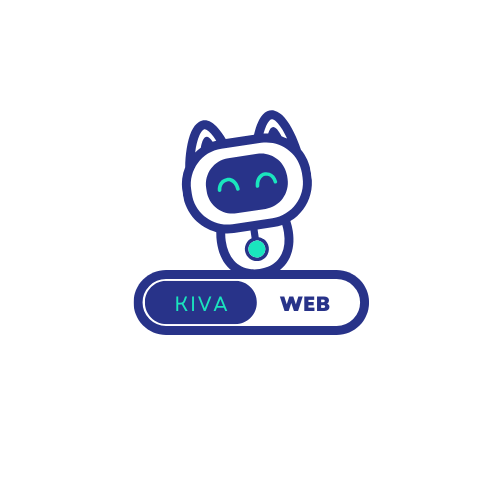In a world where robots might soon take over the coffee-making industry, AI-powered innovation is leading the charge into the future. Imagine a realm where machines not only crunch numbers faster than a caffeinated squirrel but also create solutions to problems we didn’t even know existed. This isn’t just sci-fi anymore; it’s happening now, and it’s transforming industries at lightning speed.
Table of Contents
ToggleWhat Is AI-Powered Innovation?
AI-powered innovation refers to the integration of artificial intelligence technologies into various processes and products, leading to groundbreaking advancements across multiple sectors. This integration enables organizations to enhance efficiency, speed up decision-making, and reduce human error. Companies leverage AI to analyze vast datasets, allowing for insights that drive strategic decisions.
Automation plays a key role in AI-powered innovation. Robots and intelligent systems take over repetitive tasks, freeing human employees to focus on creative and complex problem-solving activities. In the coffee-making industry, for example, AI algorithms monitor brewing processes in real-time, ensuring optimal flavor extraction. This application exemplifies how AI can optimize traditional practices.
Additionally, AI fosters innovation by predicting trends and consumer behavior. Retailers utilize machine learning models to personalize marketing efforts, resulting in higher customer engagement. Such predictive capabilities support businesses in staying ahead of the competition by adapting to market changes swiftly.
With these advancements, sectors like healthcare experience significant transformations. AI systems assist in diagnostics, enhancing accuracy and facilitating early detection of diseases. This technological support leads to better patient outcomes and optimized resource allocation within healthcare facilities.
AI-powered innovation also promotes sustainability. Energy-efficient solutions arise from intelligent systems that monitor and adjust power usage, minimizing waste. Industries adopt these practices, demonstrating a commitment to environmental responsibility alongside profitability.
Organizations that embrace AI technology position themselves as leaders in their industries. Rapid advancements showcase its potential, transforming challenges into opportunities for innovation. As AI continues to evolve, the possibilities for enhancing processes and generating new solutions remain boundless.
Benefits of AI-Powered Innovation

AI-powered innovation delivers numerous advantages across various sectors, significantly impacting efficiency and accuracy.
Enhanced Efficiency
Automation improves operations and increases efficiency by allowing machines to take over repetitive tasks. This shift frees human employees to focus on strategic initiatives, promoting creativity and problem-solving. For example, the coffee-making industry benefits from AI algorithms optimizing brewing processes, leading to faster production times and consistent quality. In manufacturing, AI analyzes workflows and identifies bottlenecks, streamlining operations. By adopting AI solutions, businesses can reduce costs and improve overall productivity. Organizations embracing these innovations position themselves to respond quickly to market demands.
Improved Accuracy
AI technologies enhance accuracy through data analysis and pattern recognition. Sophisticated algorithms process vast amounts of information quickly, minimizing human error in decision-making. In healthcare, AI systems assist in diagnostics by identifying anomalies in medical images, significantly increasing accuracy rates. Retailers use AI to forecast consumer behavior, ensuring marketing strategies align with actual trends. By leveraging AI-driven insights, companies not only improve performance but also enhance customer satisfaction. Accurate predictions and analyses transform business operations, resulting in better resource allocation and more effective solutions.
Applications of AI-Powered Innovation
AI-powered innovation is reshaping numerous sectors. Enhanced capabilities and efficiencies emerge as businesses adopt these technologies.
Healthcare
AI significantly improves healthcare outcomes. Machine learning algorithms analyze medical images, allowing for earlier detection of diseases like cancer. Hospitals leverage predictive analytics to identify patients at risk of complications, enabling timely interventions. Personalized treatment plans emerge from AI’s ability to process vast amounts of patient data. Drug discovery accelerates through AI, with computational models predicting how drugs interact with targets. The integration of AI in telemedicine enhances patient engagement, facilitating virtual consultations and remote monitoring. These advancements collectively promote better healthcare delivery and improve patient experiences.
Finance
Financial institutions heavily rely on AI for risk assessment and fraud detection. Algorithms analyze transaction data in real-time to identify suspicious activities, minimizing losses. Predictive analytics support investment strategies by forecasting market trends. Robo-advisors provide tailored financial advice based on individual client profiles. By automating routine processes, AI allows human analysts to focus on complex financial problems. Additionally, chatbots enhance customer service, answering inquiries 24/7 and improving client satisfaction. These innovations streamline operations and create a more efficient financial ecosystem.
Manufacturing
AI revolutionizes manufacturing processes. Robotics automate assembly lines, increasing production speed and reducing errors. Predictive maintenance minimizes downtime by predicting equipment failures before they occur. Supply chain optimization benefits from AI, helping companies manage inventory and forecast demand accurately. Data analysis identifies inefficiencies in workflows, enabling managers to implement targeted improvements. Workers benefit from collaborative robots, taking over repetitive tasks and allowing human staff to engage in more skilled activities. Overall, AI enhances productivity and product quality in manufacturing settings.
Challenges of Implementing AI-Powered Innovation
Implementing AI-powered innovation presents several challenges that organizations must navigate effectively to leverage the full potential of AI technologies.
Data Privacy Concerns
Data privacy concerns stand out as a significant challenge in AI integration. Organizations often collect vast amounts of personal data to train AI models. This data usage raises questions about user consent and the potential for misuse. Companies must adhere to regulations like GDPR and CCPA, ensuring transparency in how data is handled. Upholding data security becomes essential to maintain customer trust. Violations can lead to severe financial penalties and reputational damage, making it crucial for businesses to implement robust data protection measures. Prioritizing user privacy not only safeguards against breaches but also fosters a sense of security among consumers.
Integration with Existing Systems
Integration with existing systems poses another challenge for organizations embracing AI. Many companies use legacy systems that may not be compatible with new AI technologies. Transitioning to modern infrastructure can require significant investment in time and resources. Organizations face the need for skilled personnel who can seamlessly integrate AI tools into workflows. Additionally, training employees to effectively use new AI systems becomes necessary. Without proper integration, the expected efficiency gains may not materialize. Successful implementation mandates a comprehensive strategy that addresses both technical and human factors to facilitate smooth adoption.
Future Trends in AI-Powered Innovation
Advancements in AI continue to shape various industries, driving innovation at unprecedented rates. Automation technologies are expected to evolve, allowing more complex tasks to be handled by machines. Robotics innovations within healthcare promote accurate diagnostics and personalized treatment approaches, as AI models analyze patient data for improved outcomes.
Retailers increasingly leverage AI for data-driven decision-making, enabling hyper-personalized marketing strategies. Predictive analytics reveal consumer trends, giving businesses insights that enhance customer engagement. Supply chains will see further optimization through AI, leading to smarter inventory management and demand forecasting.
AI’s role in finance also expands. Algorithms meticulously scan transactions, enhancing fraud detection and risk management strategies. Robo-advisors are becoming more sophisticated, delivering tailored financial solutions based on individual user profiles. Adaptability in AI technology will help organizations to stay competitive and responsive to market dynamics.
Potential in education grows with AI-powered learning platforms. These platforms tailor educational experiences based on student performance and preferences, fostering more effective learning environments. Engagement increases through personalized tutoring and real-time feedback.
Environmental sustainability stands as another focal point. Smart technologies will help industries minimize waste and energy consumption by analyzing processes and identifying inefficiencies. This strategic approach not only benefits the planet but also enhances operational efficiency.
As AI integration becomes more prevalent, ethical considerations rise in importance. Organizations must ensure compliance with data protection regulations like GDPR. Maintaining transparency will be crucial in building customer trust amid growing privacy concerns.
Continuous development of AI technologies promises exciting possibilities. Organizations committed to innovation stand to unlock significant value by embracing these trends.
Conclusion
AI-powered innovation is reshaping industries and driving unprecedented growth. Organizations that embrace these technologies are not just adapting but thriving in a rapidly changing landscape. By enhancing efficiency and decision-making, AI is transforming how businesses operate and engage with customers.
The journey toward successful AI integration requires careful planning and a commitment to ethical practices. As companies navigate challenges like data privacy and system compatibility, those that prioritize transparency and customer trust will emerge as leaders in their fields.
With the continuous evolution of AI, the future holds immense potential for organizations willing to innovate. The landscape is set for further advancements that promise to redefine productivity and sustainability across all sectors.










